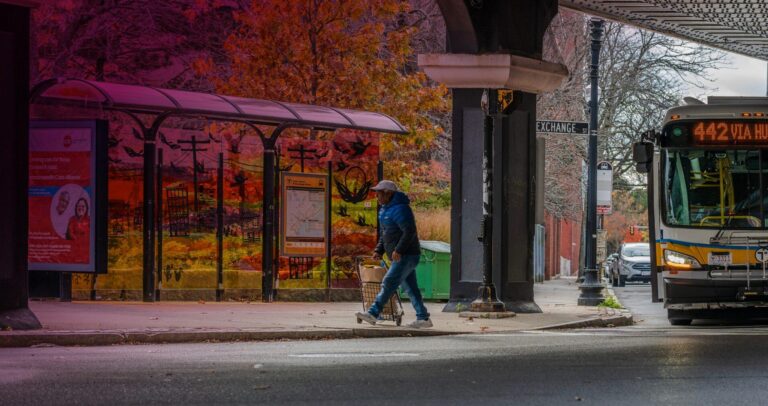Massachusetts is accelerating efforts to tackle climate change by addressing one of its largest sources of pollution: transportation emissions. Data from 2020 reveals that vehicles remain the top contributor to the state’s carbon footprint, posing significant challenges for achieving aspiring climate goals. In response, state officials and planners are exploring a range of strategies-including expanding electric and fuel-efficient vehicle use, promoting carpooling, and redesigning cities to be more walkable and bikeable-to reduce transportation-related emissions and curb environmental impact. As the state continues to slash overall CO₂ emissions and prepare for evolving climate demands, transforming transportation will be critical to Massachusetts’s clean energy future[[1]](https://www.boston25news.com/news/local/2025-earth-day-transportation-emissions-fueling-climate-change-massachusetts-data-shows/KYGSANL7CNADZFUOPM4UKD2DBE/)[[3]](https://www.axios.com/local/boston/2025/09/25/massachusetts-co2-emissions-decrease).
Table of Contents
- Massachusetts Launches Comprehensive Climate-Resilient Transit Initiatives
- State Invests in Green Infrastructure to Combat Extreme Weather Impacts
- Innovative Policies Aim to Reduce Carbon Emissions Across Transportation Sector
- Experts Call for Expanded Public Transit and Electrification to Meet Climate Goals
- In Summary
Massachusetts Launches Comprehensive Climate-Resilient Transit Initiatives
Massachusetts is advancing transformative transit strategies to fortify its transportation network against escalating climate risks. The state’s latest initiatives emphasize resilience and sustainability, targeting critical infrastructure upgrades and innovative technologies. Key investments include enhanced flood defenses for vulnerable transit corridors, the integration of green energy solutions for public transportation fleets, and the deployment of advanced real-time monitoring systems to anticipate and respond to environmental disruptions swiftly.
The comprehensive approach also prioritizes community engagement and equitable access, ensuring that all residents benefit from a more robust transit framework. The initiative features:
- Expansion of climate-adaptive infrastructure such as elevated tracks and weather-resistant materials
- Promotion of zero-emission vehicles in public transit fleets to reduce carbon footprint
- Improved emergency response protocols tailored for extreme weather events
- Collaborative partnerships with local governments and environmental agencies for ongoing resilience planning
State Invests in Green Infrastructure to Combat Extreme Weather Impacts
Massachusetts is channeling significant resources into innovative green infrastructure projects designed to enhance resilience against escalating extreme weather events. Prioritizing nature-based solutions, these investments include the restoration of wetlands, expansion of urban tree canopies, and implementation of permeable pavement systems to improve stormwater management. Such efforts not only mitigate flooding risks but also contribute to improved air quality and biodiversity across the state.
Key initiatives encompass:
- Expansion of green stormwater infrastructure to absorb and filter runoff in urban and suburban areas
- Rain garden installations near critical transportation corridors to reduce surface water accumulation
- Enhanced wetland conservation programs to act as natural buffers against storm surges
- Collaboration with local communities to incorporate sustainable land use practices and elevate climate resilience awareness
These strategies reflect Massachusetts’ commitment to integrating sustainability into its transportation framework, ultimately ensuring safer, more adaptable infrastructure in the face of climate volatility.
Innovative Policies Aim to Reduce Carbon Emissions Across Transportation Sector
Massachusetts is accelerating its environmental agenda with a suite of groundbreaking policies that target a sharp reduction in carbon emissions from the transportation sector. Key initiatives emphasize a transition to electric vehicles, expanded public transit options, and investments in clean energy infrastructure. These steps reflect the state’s commitment to aligning regulatory frameworks with ambitious climate goals,positioning Massachusetts as a leader in sustainable transportation innovation.
Among the notable measures are the incentives for electric vehicle adoption and the enhancement of charging networks to support widespread use. The state also encourages collaboration with municipal governments to improve bike lanes and pedestrian-friendly routes, further decreasing dependency on fossil fuels. Additional priorities include:
- Implementation of stricter emissions standards for commercial fleets
- Deployment of smart traffic management systems to reduce congestion
- Support for alternative fuels such as hydrogen and bioenergy
These integrated efforts not only aim to minimize environmental impacts but also enhance the quality of life through cleaner air and more efficient transportation choices.
Experts Call for Expanded Public Transit and Electrification to Meet Climate Goals
Transportation experts emphasize the critical need for Massachusetts to accelerate the expansion of its public transit network as a cornerstone of its climate strategy. With the state aiming to slash greenhouse gas emissions drastically by 2050, reliance on personal vehicles powered by fossil fuels is being challenged. Investments in expanding rail lines,increasing bus frequency,and enhancing accessibility are seen as essential steps to entice commuters away from cars and reduce urban congestion. Industry voices urge policymakers to prioritize projects that connect underserved communities, ensuring equitable access to sustainable travel options.
In parallel, electrification of the transportation sector is identified as an indispensable element for meeting climate targets. Transitioning municipal fleets, ride-share services, and private vehicles to electric alternatives would sharply cut emissions and promote cleaner air. Experts highlight key actions needed to support this shift, including:
- Expanding public charging infrastructure statewide
- Offering incentives for electric vehicle purchases
- Integrating renewable energy sources with transit systems
Collectively, these measures are expected to drive Massachusetts closer to a resilient, low-carbon future in transportation.
In Summary
As Massachusetts accelerates its transportation initiatives to meet climate challenges head-on, the state is positioning itself as a leader in sustainable mobility.With expanded public transit options, investments in green infrastructure, and policies targeting emissions reduction, Massachusetts aims to create a resilient, low-carbon transportation network for its residents. The coming years will be critical as these efforts unfold, shaping not only the state’s environmental future but also the daily lives of millions relying on cleaner, smarter transportation solutions. For ongoing updates and resources, residents can explore services and facts available through the Massachusetts Registry of Motor Vehicles and public transit authorities [[1]](https://www.mass.gov/orgs/massachusetts-registry-of-motor-vehicles), [[3]](https://www.mass.gov/info-details/public-transportation-in-massachusetts).

